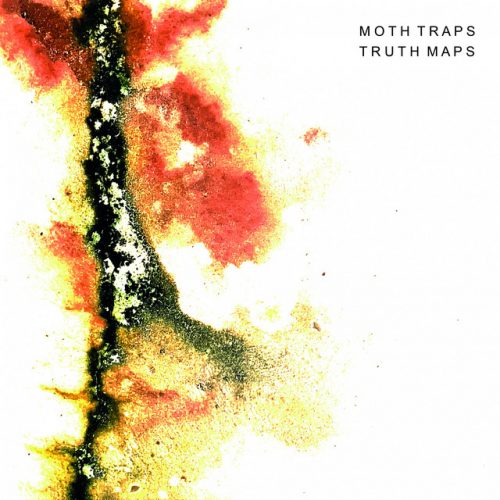There’s a pathos inherent in the decline and fall of things. Big things, yes, like the fall of the Roman Empire, but smaller things as well, things that were ubiquitous for a time before gradually fading from view. A silent film star ruminating on her past glory; a legendary pop band performing in front of bored senior citizens at a county fair; a once-beloved chain restaurant with just the one location left in Utica. Even the most minor examples, such as the tale of the last Blockbuster, feel a little like ghost stories: something died a long time ago, and yet it lingers all the same, carrying on as though nothing changed.
Moth Traps, Robyn McIntosh’s avant-pop project, uses that pathos to great effect on his recent song, “Brittle Star (HSJNT).” “HSJNT” stands for the Honorable Stephen James Napier Tennant, a wealthy, decadent socialite of 1920s London known as one of the “Bright Young Things.” Bohemian and hedonistic, the Bright Young Things partied their way through the decade before their lifestyle (and World War II) caught up to them. Tennant ended up outliving most of his friends, spending the last years of his life in his family’s manor before dying in 1987.
“Brittle Star” is appropriately preoccupied with decay. Its warped synths and pitch-shifted vocals (heavily influenced by The Knife and Gazelle Twin) bring to mind a machine wheezing and sputtering to life after years of disuse, and the lyrics are sung from Tennant’s perspective as he looks back on what once was. Crucially, McIntosh never loses touch with the human element: the violent immediacy of the drums keeps things from being too abstract, and Tennant’s desperation is palpable and pitiable. “I used to be beautiful like you,” he croons in the chorus, before adding a pleading “can’t you see that?”
If “Brittle Star” was just an old rich guy feeling sorry for himself, it would still be an enjoyable piece of mutant synth-pop. Thankfully, McIntosh has empathy for Tennant, and understands just what makes his plight so poignant. By the time Tennant died, almost all of his former friends had died. Some were lost earlier, to drugs, sickness or war. Some, like Cecil Beaton and Nancy Mitford, lived long enough to die slow deaths from strokes or cancer. Those who outlived him, such as Harold Acton and Anthony Powell, generally had better things to do. Although the lyrics don’t come out and say it, Tennant isn’t just mourning his youth, but the friends and lovers he enjoyed it with. “Dear soldier of fate!” McIntosh-as-Tennant laments, as though wondering why he was chosen to die alone.
Perhaps we’ll be lucky enough to avoid that fate; after all, not all of us will end up in a social circle filled with high-risk hedonists. But “Brittle Star” implies that we should never take for granted that we’ll spend our twilight years surrounded by friends and family. After all, who knows what fate has in store?







